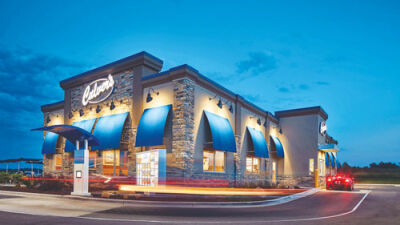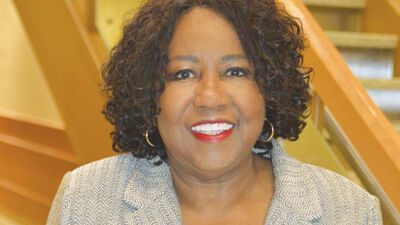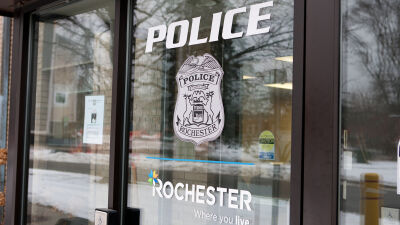FARMINGTON HILLS — With inflation and high gas prices being a modern-day reality for many, now is as good a time as any to develop a sound financial strategy.
There are a variety of ways people can go about increasing their financial literacy.
GreenPath Financial Wellness, based in Farmington Hills, is one of the largest nonprofit financial counseling agencies in the United States.
GreenPath recently stressed the need for people to periodically review their finances and seek help navigating budgeting, managing debt and building up savings.
Katie Bossler is a quality assurance specialist at GreenPath.
She recently shared her perspective as to some of the most common financial mistakes people make.
“One is not regularly putting money into savings — not having that savings fund for when something goes wrong,” Bossler said. “And it’s tough, because so many people feel stretched, but when you’re living on a 100%, when things come up, when life does happen, that ends up going onto a credit card, and that creates a spiral effect of and a problem of, now your expenses are going up, and now the next things in life are happening. Living on that edge is really, I think, the root of so many problems.”
From Bossler’s perspective, one solution for solving that problem is figuring out how to live without relying on a 100% of the income that is coming into a household.
“I think our grandparents’ rule of thumb, the old adage, is, save 10 %,” she said. “That would be great. The more the better, though, so that you have that room, that cash cushion in the budget for the unexpected.”
West Bloomfield resident Marci Grossman is a certified public accountant and the author of a self-published book titled “Money Marci’s Guide to Financial Literacy” on amazon.com.
She believes that having a spending problem is the No. 1 financial mistake people make.
“The first one always comes to spending everything they have, or even spending more than they have,” Grossman said. “People tend to spend what’s in their pocket, or spend what they have available on their credit card. They look at what the payment plan might be rather than what their total debt might be — not considering the overall financial ramifications of a decision.”
A disciplined, patient approach can be a key factor when it comes to financial security.
“You have to consider the long-term, because you’re going to blink, and a year or years have passed, and the most value you get for any saving you do is the earliest you put it in,” Grossman said. “So I tell people the best time to start saving is yesterday, and the next best time is today. … They call it paying yourself first and setting aside that savings money, have it come out of your check so that you never see it and it doesn’t become part of what you think you can spend, so that you don’t have to try and find it later to save it. Have it come out of your paycheck — they can send it to a savings account, they can send it if your work has a 401(k) or something, so that you’re not tempted to spend it.”
Regardless of what is going on in the world, not having a sound financial plan can be a big source of problems for many. However, inflation has exacerbated the issue.
“Between food and gas, those everyday things, it’s having a bigger impact on the budget. … This is causing a lot of pinch for a lot of our clients,” Bossler said. “They’re all of a sudden having a hard time making ends meet, maybe more than a year ago, with inflation, because of these rising costs. For those who are, I think, more financially successful, they’re adopting, adapting and looking for ways to bring in more income, or ways to shop smarter and things like that, so that this isn’t having an impact on the budget. … It’s definitely something that, it’s causing a pinch — everybody’s feeling it — but it’s a matter of if you’re paying attention and adjusting accordingly.”
Although the word “budget” is one that Bossler acknowledged many people don’t like, from her perspective, having one and sticking to it play big roles in financial success.
“I would recommend (looking) at that money that’s coming in and then plan where it needs to go out; looking at those fixed expenses, the monthly bills, as well as the variable stuff, and doing your best to get some real estimates for things like food and gas,” she said. “There’s all kinds of budgeting worksheets online, including at GreenPath’s website. … Take that hard look of what’s coming in and going out.”
Modern technology can go a long way toward helping people figure out a budget.
“There’s apps to help you track how much things actually cost you, or even go back to your bank account from the last couple months and start to categorize things; most banks actually will do that for you so that you can get a real estimate of what it costs on a monthly basis or what you’re spending,” Bossler said. “Hopefully, it balances and, hopefully, there’s some room to start saving in there, if you’re not already, or to include savings as an expense. But if it doesn’t balance, then it’s really looking at what options you have to be able to cut expenses or bring in more income.”
After doing a budget inventory, Bossler suggests that people look at the debt that they’re carrying and explore options for reducing interest rates on mortgage and credit card payments. Taking that step can expedite the process of getting out of debt and help reduce monthly costs.
Bossler said that debt and credit management counseling are a “big piece” of what GreenPath does.
“That counseling is free,” she said. “We also have what’s called the debt management program, which is a long-term service that we offer at GreenPath. That’s where we can negotiate with creditors, like credit card companies, to reduce interest rates (and) lower monthly payments. It’s really designed to get people out of debt in three to five years.”
Educating people about the importance of paying attention to interest rates has been a big part of Bossler’s role at GreenPath.
“In my years of counseling, it’s such a moment to see somebody have the light bulb go off, when they understand what interest rates mean,” she said. “If you can educate yourself on that and why that matters, you can save so much money. So many people I talk to will get into double-digit car loans — interest rates on car loans — or just not really ever understand what interest means. And so they’ll make minimum payments for years and years and years, and not pay attention and wonder why their balance isn’t going down.”
For many, credit cards have played a big role in accumulating debt.
“Credit is designed for convenience; it is a way to purchase things and maybe accrue some points or rewards, but if you’re using credit because there’s not money in the bank, these are red flags; like, ‘I need to use credit to buy groceries till the next paycheck,’ that kind of thing,” Bossler said. “I think for a lot of our clients, they’ll open credit cards (to) get a discount at a retail store; I really recommend minimizing that as much as possible, having all these store cards. For most people, that’s just too overwhelming. We’ll see clients come in with five, 10, 15, 20, 30, 50 cards.”
Bossler gave her opinion as to the ideal number of credit cards to carry.
“For your credit score — for FICO credit score — two to six, they say, is ideal for credit cards. I think for most people, two is the more manageable number,” she said. “Maybe there’s one that you use for convenience and points — you don’t even have to wait till the bill comes; you can log in online and pay these accounts on a pretty regular basis, even before the actual bill comes, just so that you’re using it truly for that convenience and points factor. … Maybe the other card is more for an emergency, or travel, something like that.”
Bossler shared a tip for those who are struggling financially.
“I would say if somebody is experiencing financial trouble, the best thing to do is to respond immediately and not wait,” she said. “If there’s a hardship, maybe there’s more going out than coming in, and so looking at what options you have to get that budget balanced again. That’s exactly the conversations that we have at GreenPath with clients, to help them understand their options. Sometimes, small changes can make up the difference. Sometimes, larger changes need to take place, but the idea is to really face it, and face it as soon as you can.”
On its website, GreenPath offers free educational material, including budgeting worksheets.
For more information, visit greenpath.org.
Grossman offered some simple, practical steps people can take to cut down on their expenses.
“I would say almost everyone could improve their situation by looking at where they’re spending money,” she said. “I am sure most people have some subscription service that they are paying monthly, whether it’s a gym (membership) they no longer use, or a cable TV station they have to pay for that they never watch. We all have those hidden in our checkbook and our expenses. On my website, I have a spreadsheet for budgeting, and it lists all these expenses, and the exercise kind of forces you to go and look through your checkbook, and look through your credit card, and really allocate these expenses so you can see where you’re spending your money and find places that you had no idea you were spending $10, $20, even $100 a month on things that serve you no purpose.”
For more information, visit moneymarci.com.
Grossman shared some encouraging words for those who think there is no way out of financial difficulties they are facing.
“There is always a way out of it, even if your way out of it would, unfortunately, have to be declaring bankruptcy or whatever it is, and taking a step back from where you are,” she said. “There is always the opportunity to improve your future by learning more and making better decisions — improving your knowledge so you can make those better decisions.”
 Publication select ▼
Publication select ▼



























